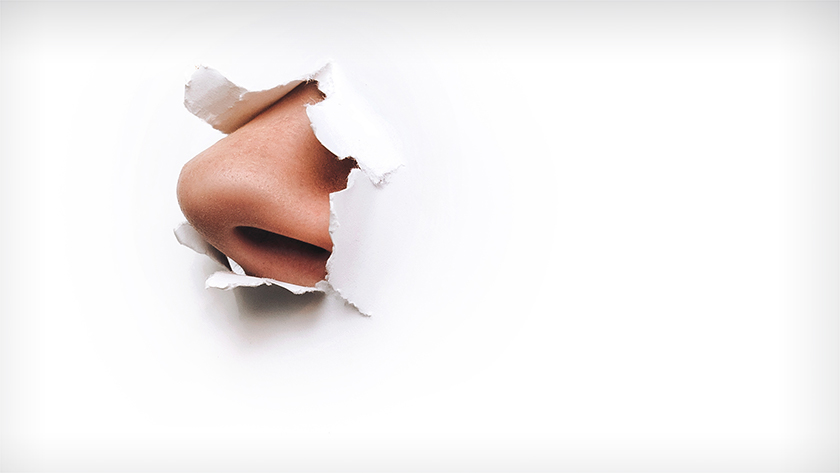Dr. Mark Bayley, (L), is a Senior Scientist at the KITE Research Institute at University Health Network and the senior author of the new study; Evan Foster is a clinical research assistant at UHN’s Hull-Ellis Concussion and Research Clinic and the principal author of the study. (Photos: UHN StRIDe Team)
The symptoms of a concussion often spontaneously resolve within a couple of months following injury. However, in about 15 per cent of cases, headaches, dizziness, difficulty concentrating or other symptoms can persist.
Identifying these patients early is essential to better long-term management.
New results from the Toronto Concussion Study at UHN have clarified whether a patient’s sense of smell can predict how quickly they will recover or signify how severe their concussion is.
Prior research had shown that moderate-to-severe brain injury can lead to an impaired sense of smell, and a few small studies had suggested this might likewise be true for mild brain injuries, namely concussions.
The new research study, led by Dr. Mark Bayley, a Senior Scientist at the KITE Research Institute at UHN, and his clinical research assistant Evan Foster, aimed to determine whether an impaired sense of smell does indeed relate to the severity or persistence of concussion symptoms.
The research team recruited 167 participants who had suffered concussions from falls, sports activity or other causes – making it the largest study of its kind. The researchers then tracked each participant’s concussion symptoms and sense of smell for eight weeks.

To evaluate sense of smell, each study participant was given a scratch-and-sniff booklet with common odours such as garlic or gasoline that they would have to identify at frequent appointments. In parallel, the participants were questioned about their symptom severity and improvement.
Surprisingly, the research team found that the participants on average did not experience changes in sense of smell between initial assessments and follow-up appointments. In fact, the researchers found that the fraction of participants with any impairment to their sense of smell – around 38 per cent – was consistent with that of the general public and that this impairment was stable over time.
“Just as doctors need to know what is a sign of concussion severity or recovery, they also need to know what is not,” says Dr. Bayley, who is also a Professor of Physical Medicine and Rehabilitation and a faculty member of the Institute of Health Policy, Management and Evaluation at the University of Toronto. “Our results narrow the search for true predictors and will help doctors avoid red herrings.”
This work was supported in part by donors to UHN Foundation.


